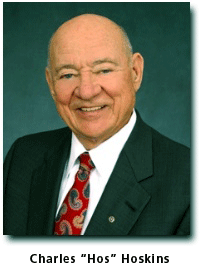BY LINDA BENTLEY | SEPTEMBER 1, 2010
2010 property tax bills are in the mail
‘‘We often hear from citizens wanting to know why their tax bills have gone up … and the answer is government spending’
![]()
PHOENIX – Maricopa County property tax bills for 2010 are in the mail and may also be viewed online at treasurer.maricopa.gov.
 Last week, Maricopa County Treasurer Charles “Hos” Hoskins, upon announcing the 2010 property tax bills would soon be mailed, said people should not be surprised if their tax bill goes up, even though the assessed value of their property, as determined by the county assessor, may have gone down.
Last week, Maricopa County Treasurer Charles “Hos” Hoskins, upon announcing the 2010 property tax bills would soon be mailed, said people should not be surprised if their tax bill goes up, even though the assessed value of their property, as determined by the county assessor, may have gone down.
Hoskins stated, “We often hear from citizens wanting to know why their tax bills have gone up, even though the assessed value of their property has gone down and the answer is government spending.”
Pointing out property taxes are different than other types of taxes paid in that taxing jurisdictions first decide how much money they need to fund their respective budgets, Hoskins said, “Then they work backwards to come up with a tax rate by dividing the total assessed (taxable) value of all properties within the jurisdiction into their operating and debt service budgets. The tax rate is then applied to the assessed value of each property to determine its share of the jurisdiction’s levels. Under this system, a decline in value without an equal decline in the jurisdiction’s budgets will cause the tax rates and the taxes to go up.”
According to Hoskins, the total combined tax levy amount set by all 1,509 Maricopa County taxing jurisdictions for 2101 is $4.4 billion, 3.68 percent less than 2009.
Less than two weeks earlier, the Maricopa County Board of Supervisors issued a press release touting, “Supervisors Lower Property Taxes; County-controlled portion of tax bills will drop.”
Noting, “The steep decline in property values during Arizona’s housing recession will have one benefit for Maricopa County homeowners: The county-controlled portion of their property tax bill will be lower for most homeowners this year.”
A lower Secondary valuation (Full Cash Value) and a 3.9 percent reduction in the tax rate means nothing if the Primary valuation (Limited Cash Value), on which the county portion of the tax levy is based, increased by substantially more than that.
Lynne Weaver, an advocate for limited taxes who chaired the Prop 13 Arizona Political Action Committee, calls Arizona’s property tax schemes a “shell game.”
She said, “Every time our government tells us they can do something with ‘no new taxes,’ we can count on our property tax bills being higher the next time around.”
Weaver is determined to get Prop 13-type tax legislation on the ballot in 2012 to put the brakes on government growth and spending and is gearing up to run her initiative, once again.


